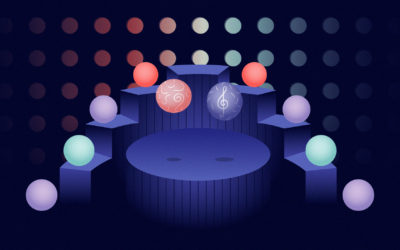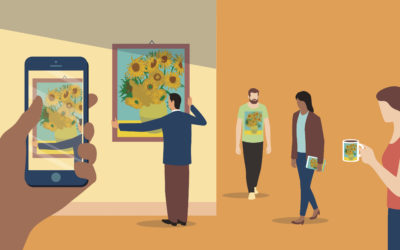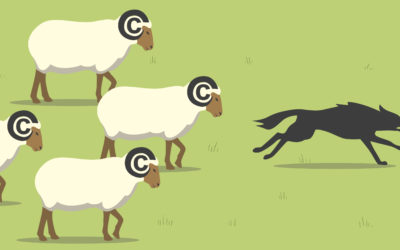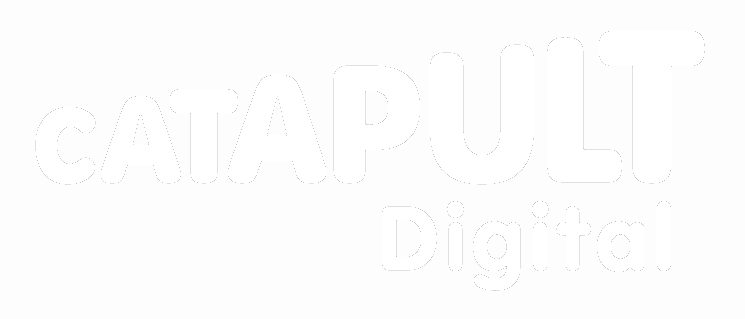Licensing and Exploiting
Author: James Griffin
Illustration: Davide Bonazzi
If you own the copyright in a work, you are free to exploit it on your own or license the use of it to another party (such as a book publisher). ‘Exploit’ in this context means to develop or make use of it. When considering whether to license your work, you should assess whether or not you are truly the owner of the work in question. For example, work might have been produced in the course of employment. If that is so, then copyright will normally reside with the employer rather than the employee. Similarly, works with multiple authors will have shared copyright, making it impossible for only one of the contributors to license the whole work without consent of the other creators.
Copyright consists of a number of related rights, all of which may be licensed: one such right is the distribution right of a work, which only relates to the first sale and not subsequent sales. This means that once a physical copy of a work (e.g. a CD, a DVD, a book) is sold within a country, the rightsholder cannot control the distribution of that copy any longer (in legal terms this is known as ‘exhaustion of rights’). Consequently, the buyer may resell that copy to others without the copyright owner’s consent. However, this principle does not apply to online distribution; in other words, while a CD or a hard copy book can be freely resold by its buyer, this is not allowed with a mp3 album or an e-book purchased online. Usually in these cases the end-user licence states what one can or cannot do with that copy.
Other rights include the right to perform the work, the right to communicate (that is, to broadcast or transmit via the Internet) a work, and the right to adapt a work in certain limited circumstances. You can exercise more than one of these rights over a particular copyright work. There also exists the right to authorise another to carry out any of those activities.
If you hold a copyright over a work that you wish to exploit, then you may wish to license its use. A licence allows someone to use the work in a specified way for a limited period of time. Licensing might be preferable to the sale or transferring the rights of a work because you will retain greater control over the work, with its ownership still remaining with you. If you sell the copyright in a work (as opposed to a mere physical copy of it) the buyers will be able to do what they like with it and exploit the rights themselves. For this reason, licensing has become increasingly popular: many works distributed through iTunes are done so through a licence.
An exclusive licence is one that grants use of a work only to the person who acquires the licence; whereas a non-exclusive licence enables you to license the use of your work to more than one person at the same time. Licensing is also often used where content re-users are seeking to re-use a part of a copyright work (for instance, a song or the re-use of a particular cartoon character). The person granting the licence is generally referred to as the licensor; the person acquiring the licence is generally referred to as the licensee.
Licensing details are typically set out in a contract, the terms of which sometimes try to prevent the licensee from making use of the work in accordance with existing copyright exceptions. For example, the terms and conditions of many websites often seek to prevent your use of the copyright material on that website without express permission, or to confine your re-use of the material on that website to personal use only.
However, there are limits to what you can do with a contract as regards overriding exceptions to copyright. A number of copyright exceptions now expressly set out that contractual terms seeking to prevent the operation of the exception are unenforceable. For example, if a clause in a contract tried to prevent you from copying any part of a work for the purpose of reporting the news that clause would be null and void. Despite the contract, you would still be free to copy for the purposes of reporting the news, providing you satisfied all of the other relevant criteria. Other exceptions that cannot be overridden by copyright include: quotation, criticism and review; use for educational illustration and instruction; personal study and non-commercial research; parody and pastiche; archiving and preservation; and, text and data mining.
Note that there are also circumstances where a compulsory licence may be enforced by the State, for instance, as under the Broadcasting Act 1990 concerning the length of time for which broadcast music is played and the terms of payment for it.
There are many mechanisms available to make the licensing of works easier to achieve. For instance, the Creative Commons licence has a set of defined terms that a user can quickly use to create a licence. By distributing the work under a Creative Commons licence, the copyright owner allows the public to freely re-use it under certain conditions, encouraging greater circulation and awareness of the work.
Typically, creators control the use of their work by joining a collecting society, like the Authors’ Licensing and Collecting Society (ALCS) or PRS for Music. These are membership societies that act on behalf of authors, composers and songwriters. The function of these societies is to collect fees and statutory payments from users of copyright works and distribute (after deducting a percentage administration charge) the revenue from fees amongst authors and other rightsholders. For example, libraries in the UK pay fees for photocopying to the Copyright Licensing Agency (CLA) which are then distributed via ALCS to the original author. The usage-based payments the copyright owner receives from the licensing or transfer of rights of a work are called royalties.
Related
Going for a Song
Going for a Song tells the story of Tina and Ben, a music composer and a lyricist who create an original song and discuss how to market it.
Terms & Conditions
Terms and conditions are a set of rules. These rules generally form a contract between you, the user, and the service provider, whose website you are visiting.
Enforcement
Useful guidance on what you can do if you think someone has infringed your copyright, or if someone has accused you of copyright infringement.











